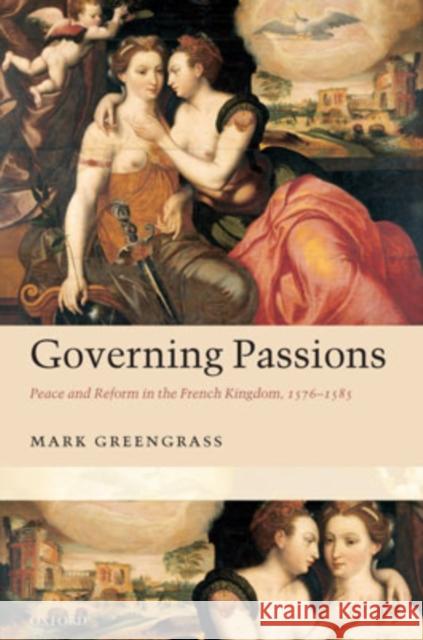Governing Passions: Peace and Reform in the French Kingdom, 1576-1585 » książka
Governing Passions: Peace and Reform in the French Kingdom, 1576-1585
ISBN-13: 9780199214907 / Angielski / Twarda / 2007 / 448 str.
The French kingdom dissolved into civil wars, known as the "wars of religion," for a generation from 1562 to 1598. This book examines the reactions of France's governing groups to that experience. Their major political endeavour was securing peace. They attempted to achieve it through a religious pluralism not envisaged in any other state on this scale in this period. Its achievement would only be fulfilled, however, alongside a reform of the kingdom's institutions and society. Peace and reform went hand in hand --a moral agenda for restoration.
France's notables drew on reservoirs of classical and Christian moral philosophy and wisdom to find practical answers to the difficult problems of governance that confronted them. The resulting public introspection and vocal debates are difficult to match anywhere else in Europe at this time. They were an essential part of the profound sense of crisis that France's governing elites experienced during the later sixteenth century.
Drawing extensively on manuscript and printed sources not hitherto examined, this book analyses for the first time the debates at the Estates General of Blois (1576-7) and the Assembly of Notables at Saint-Germain-en-Laye of 1583-4. It shows the French polity in a fresh light, presenting major issues of political thought in their public and practical context. And it re-examines the crucial and little-understood reign of Henri III, the last Valois king, suggesting how Bourbon France could have emerged very differently from the civil wars of the late sixteenth century.











